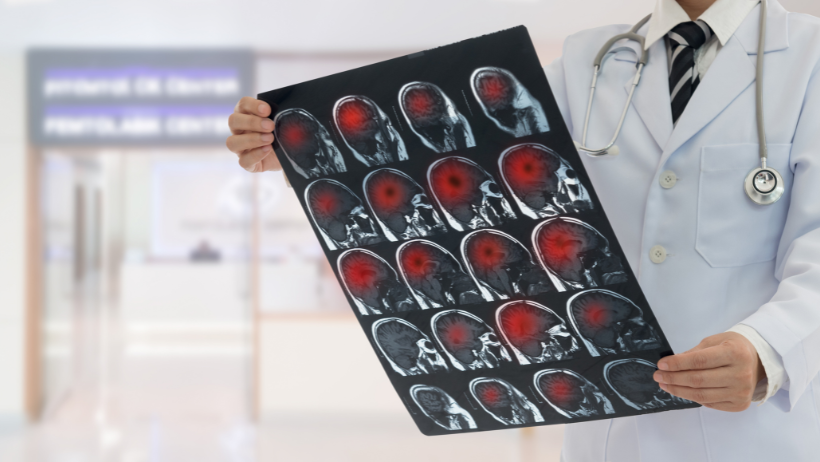
What is a Stroke
What is a Stroke? You must have heard about stroke as a medical condition. But have you ever wondered what it means and how severe
A stroke is a serious condition that can cause paralysis on one side of the body. It’s important to know the signs you may be experiencing a stroke, so you can get help as soon as possible. Here are some common signs you may be experiencing a stroke:
-You have difficulty speaking or understanding words
-Your vision changes, including becoming blurry or seeing things in short bursts
-Your hearing changes, including becoming muffled or having trouble hearing very loud sounds
-You feel unsteady on your feet or legs
-You develop weakness in your arms and hands
A stroke is a type of injury that can happen to the brain. Strokes can cause blood vessel damage, which can lead to confusion, paralysis, and even death. The symptoms of a stroke vary depending on the severity and location of the stroke. Some common symptoms include:
– inability to speak or understand
– feeling faint or dizzy
– problems with vision or hearing
– changes in mood or behavior
– problems with thinking, problem solving, language skills, or memory
– changes in balance
– changes in muscle strength or coordination
– changes in walking or biking ability
What can you do if you have a stroke
If you experience any of the following symptoms after having a stroke, you may need medical attention:
– feeling unsteady on your feet or legs
– feeling confused or lethargic
– difficulty speaking or understanding words
– difficulty thinking, problem solving, or making decisions
– experiencing shortness of breath, chest pain, sweating, restlessness,or tingling around the area where the stroke was felt
– having problems with balance or walking
What are some long-term effects of a stroke
The long-term effects of a stroke can vary depending on the severity and location of the stroke. Some common long-term effects include:
– changes in vision, hearing, balance, and movement
– limitation in thinking, language skills, or memory
– changes in personality or behavior
– increased risk for developing Alzheimer’s disease or other types of dementia
– reduced lifespan
There are a few different types of testing available to detect a stroke. These include an MRI scan, a brain scan, or an ultrasound scan. If you have any of the following symptoms, you may be experiencing a stroke:
– slurred speech
– confusion
– nystagmus
-phasia
– ataxia
– visual changes
– numbness or tingling
– confusion about what is happening
– changes in mood or behavior
What should you do if you think you have a stroke
If you think you may have a stroke, get medical help as soon as possible. If you do not have any of the symptoms listed above, there is no need to go to the hospital. However, if any of the symptoms start to show up, please call your doctor for more information. You can also find helpful information on the internet or at a nearby health center.
If you notice any of the following signs, get help from a healthcare professional as soon as possible:
-Fainting or headache – these could be signs of a stroke. If you faint or have a headache, you should go to the hospital immediately.
-Panting or blurred vision – these could be symptoms of anoxic brain damage, which can lead to a stroke.
-Slurred speech – this might indicate that your blood flow is slowing down and your brain is trying to save energy for more important tasks.
– difficulty speaking – this might be due to confusion, dizziness, oraphasia.
– changes in mood – this could be due to lack of oxygen or blood flow to the brain, which can lead to a stroke.
Strokes can be a very serious condition, and there are many things you can do to protect yourself from them. If you have a stroke, get medical help as soon as possible. There are many preventative measures you can take, such as eating healthy foods and getting enough exercise. You can also call for help if you experience any of the following symptoms: feeling unsteady or having numbness or tingling in your arms or legs, trouble speaking or understanding speech, feeling like you’re having a seizure, changes in vision, problems with swallowing or breathing. By taking these steps, you can reduce the chances of having a stroke and improve your quality of life.

What is a Stroke? You must have heard about stroke as a medical condition. But have you ever wondered what it means and how severe

What To Expect As You Recover from Stroke After a stroke, your life may never be the same. You will have to learn how to

How Stroke Recovery Works? Stroke recovery is a long process and it can be difficult to understand the different treatment options. It is important to
Limitation of Liability; The information on this website should not be considered for certain reasons and/or for privacy. It is not necessarily complete or updated. Information does not constitute advice either directly or indirectly.
The purpose of the blog is primarily to present information on blog topics on the web or collected from relevant professionals selected on the site
Information and if you have comments or questions send in the form on the website